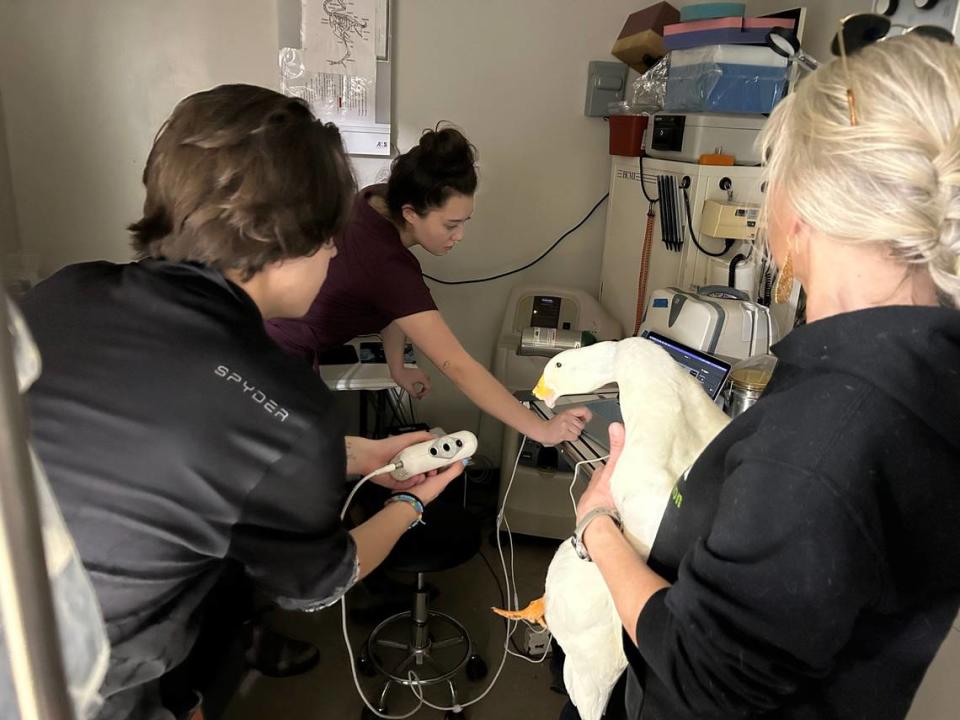Polly the duck is missing her bill — but students with a 3D printer will change that
Polly the duck arrived at a Texas rehabilitation center with over half of her bill missing, making it difficult for her to eat, drink and preen her feathers.
A group of college students, with the help of a 3D printer, hope to give the injured duck a brand new prosthetic bill.
All Things Wild, a wildlife rehabilitation center, and Southwestern University teamed up to help the “sweet” duck, religion professor and All Things Wild volunteer Laura Hobgood told McClatchy News.
“It’s just been a really interesting way to think about what can be done with 3D printing to really enhance life for these other animals,” Hobgood said.

The Perkin duck has adapted to eating and drinking, scooping her food and water with the remaining part of her bill. However, she’s unable to reach around and preen the feathers on her back, Hobgood said.
Both the top and bottom of the bill are missing, photos show, so Polly needs two prosthetics.
From the scans to creating the prototype, the project is entirely student-run, Instructional Technologist Melanie Hoag told McClatchy News. The project is supervised by Hoag.

Several versions have been printed using scans of bills from two healthy ducks and a replica of Polly’s remaining bill. Students are still working to “piece (the prosthetic) all together,” according to Hobgood.
Throughout the course of the project, the students, Ryan Andrade, Natasha Ndele and Ben Barnett, have learned that there are few photos of the bottom of a duck’s bill, according to Hoag. It’s also been difficult to get proper scans of the bill’s interior.
“As far as trying to scan the interior of a mouth, it’s sort of dark in there, which is a challenge,” Hoag said.
The current prototype was created using Polylatic Acid (PLA) filament, chosen because it is “usually non-toxic and doesn’t cause reactions,” Hoag said.
Hoag says the students are “close” to having a prototype ready for veterinarians to examine and determine how to best fit the prosthetic to Polly’s remaining bill.
Once the prosthetic bill is ready for Polly to wear, Hobgood said there are two types of adhesives they could use to fasten the new bill to Polly. Human prosthetic adhesives and dental adhesives are being considered at the moment, according to Hobgood.
Even with a new bill, Polly will stay at All Things Wild.
“She’ll never be able to be released into the wild, and Pekin ducks are fairly domesticated anyway, Hobgood said. “She’ll likely live our whole life with All Things Wild.”
Hobgood highlighted that students are able to use the technology to help animals, “actually 3D printing something that matters,” she said.
The students hope to have the project done by the end of the semester in approximately four weeks, Hobgood said. Currently, the group is finding the materials to best match the texture and weight of a normal bill.
Southwestern University is in Georgetown, Texas. Georgetown is about a 30-mile drive north of Austin.
Curious creature checks out Coast Guard boat off Louisiana, video shows. What was it?
Dog with an ‘adventurous past’ needs a home — but this ‘escape artist’ needs a fence
Mysterious thrashing in Florida swamp was alligator eating an alligator, woman learns

